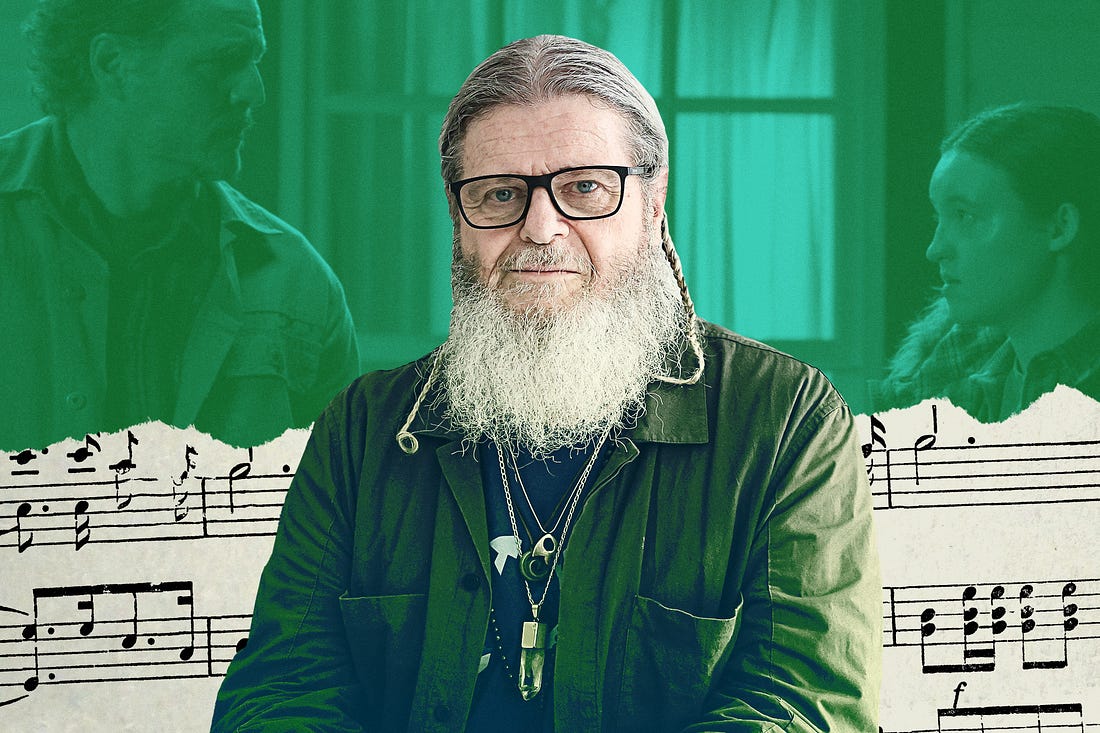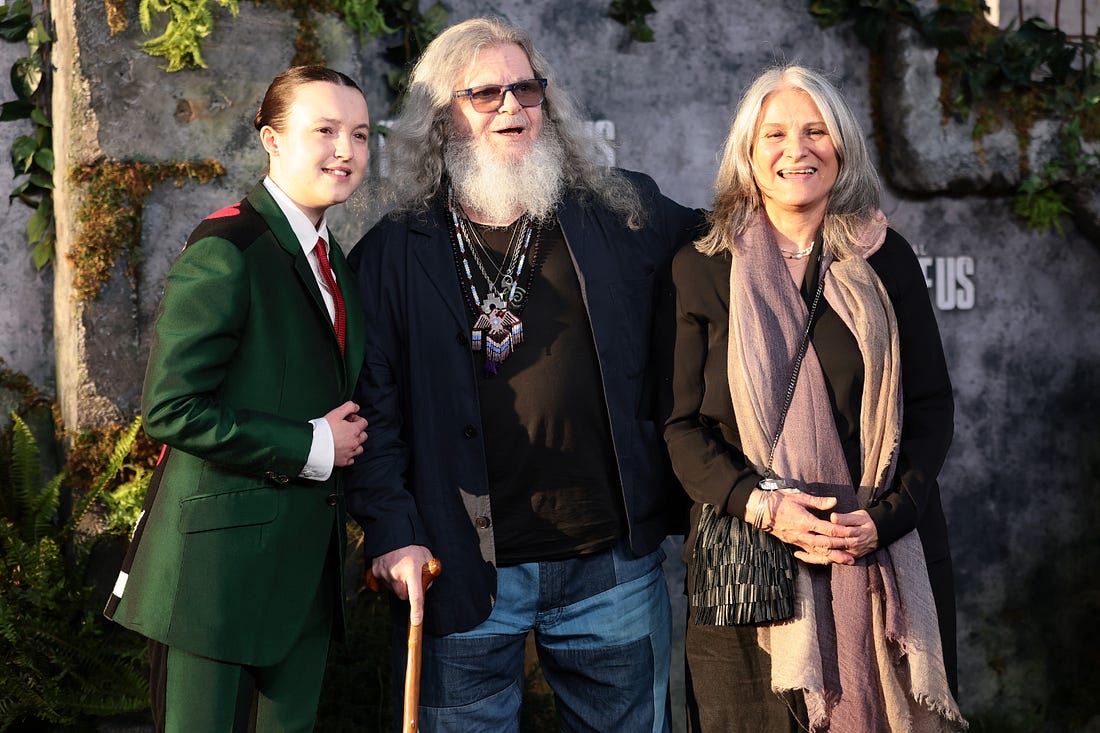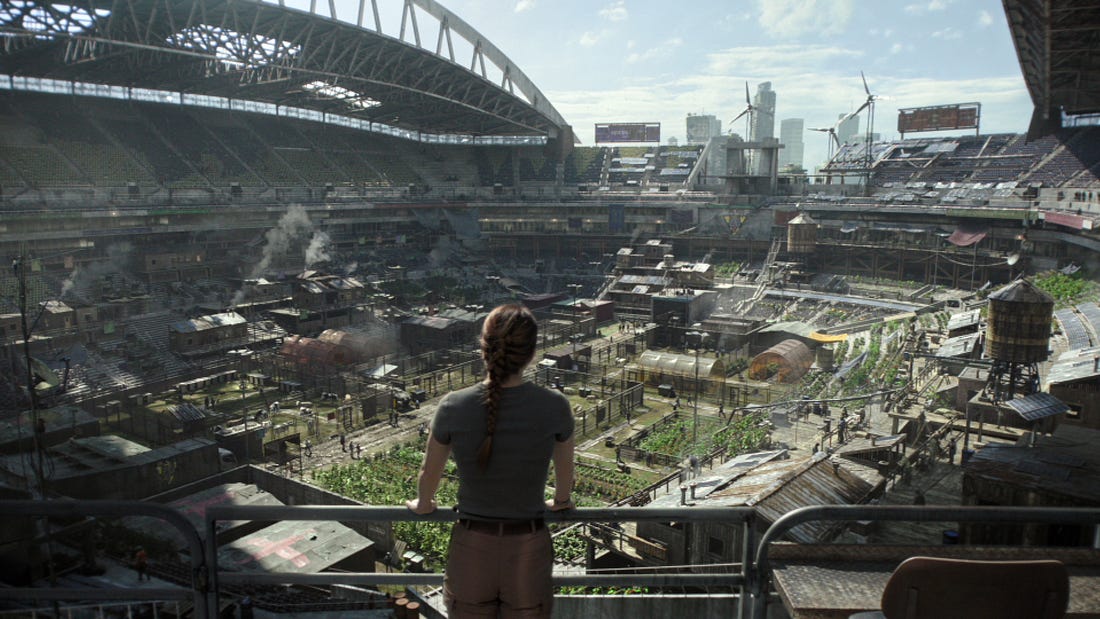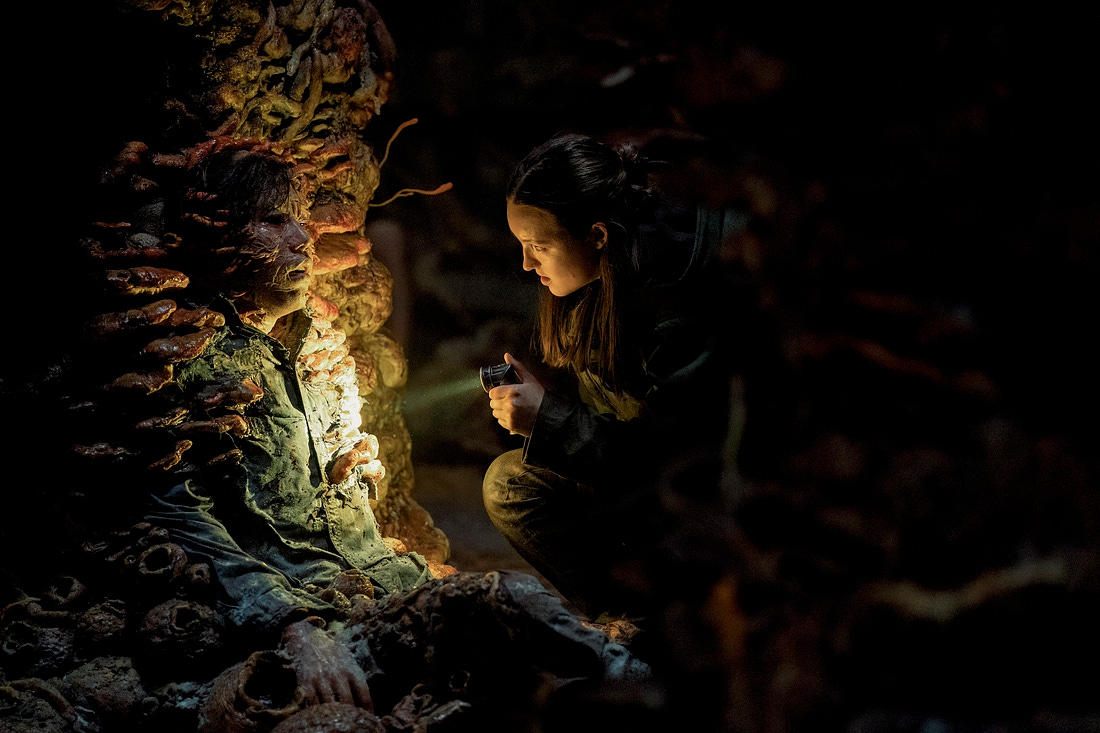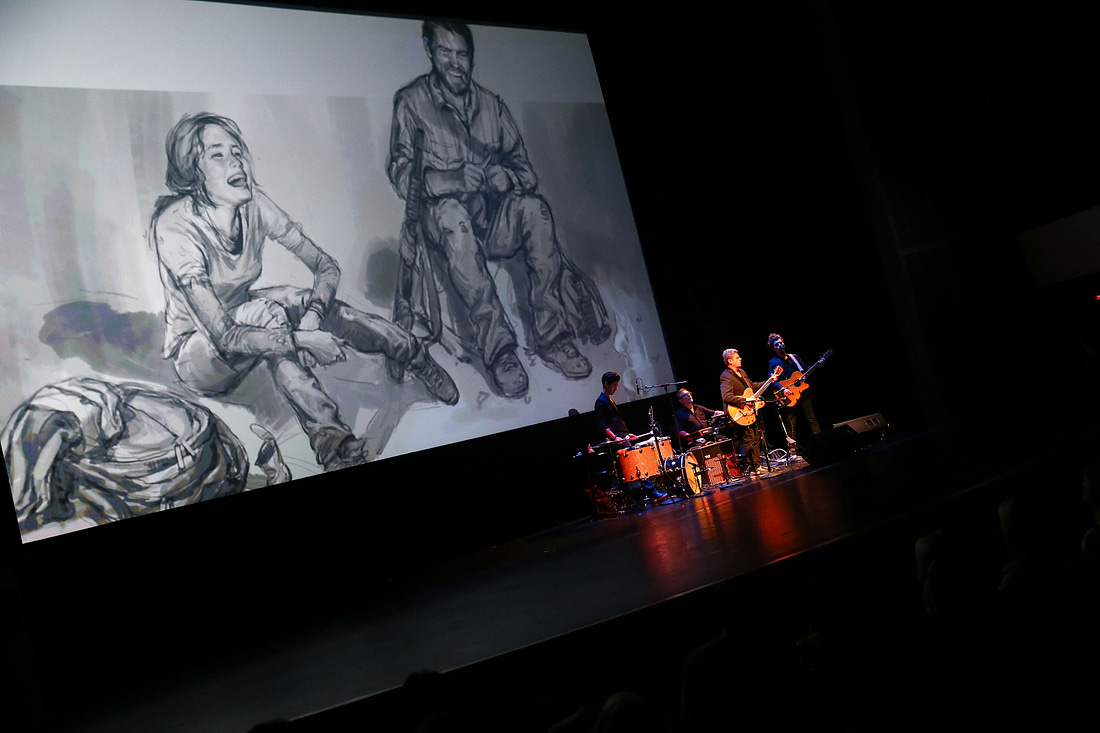'Last of Us' Brought Apocalypse. Gustavo Santaolalla Brought the HumanityA two-time Oscar winner who doesn't read or write music, he describes how he conjured a haunting score that 'plays the role of a character'I write about where music and Hollywood meet. I interviewed Benito Skinner about his collab with Charli XCX for his Prime Video comedy and spoke to White Lotus composer Cristobal Tapia de Veer about his feud with show creator Mike White. Reach me at rob@theankler.com
He appeared on my Zoom screen like a wise sage, complete with a long white beard and bushy head of hair. During my conversation with Gustavo Santaolalla — who composed the haunting score for The Last of Us, which unveiled its second season finale on May 25 — the acclaimed Argentinian composer took me on the kind of journey one would hope for, and expect, from a bona fide creative visionary and deep thinker. A two-time Oscar winner for original score (including his devastating work for Brokeback Mountain), Santaolalla has always operated outside of any prescribed artistic parameters, including more than a decade working on The Last of Us: first for the video game and then for the buzzy HBO series. If you haven’t seen it all yet, beware of spoilers in the coming space. There’s a lot of talk about Sunday’s polarizing finale, and the series in general, and it’s easy to see why: The post-apocalyptic zombie show, set in a world where a rampant fungal infection has turned most humans into grotesque monsters, regularly dominates water cooler conversation, not for its gore or violence, but rather for its nuanced attention to human emotion. Season two’s storyline is unflinching and fearless, right down to the recent killing off of star character Joel (Pedro Pascal), which shifts the series’ focus to young Ellie (Bella Ramsey) and her quest for revenge against Abby (Kaitlyn Dever), who carried out Joel’s brutal and deadly beating. It’s all ripe material for Santaolalla, who spoke to me about connecting with music on a spiritual level. Incredibly, the 73-year-old neither knows how to read nor write music, yet has spent a lifetime making it. In fact, his story could make for a prestige series of its own. I can picture it now: The first episode centers on his early life in the late ’60s-rock band Arco Iris in Argentina, a country he had to flee after it was engulfed in dictatorship-led political turmoil. By the time he returned to Argentina in the ’80s, Santaolalla had forged an acclaimed career in the L.A. folk music scene, which later caught the attention of filmmakers and led to his astounding work on scores for movies like Babel (which won him a second Oscar) and The Motorcycle Diaries. Throughout it all, he’s remained a musical hero in his native country, as evidenced by his Latin Grammy Trustees Award in 2023. Santaolalla spoke to me this week from Poland, where he’ll be honored tomorrow at the Krakow Film Music Festival’s International Gala and will be performing his greatest works for the crowd (footage of such gigs regularly rack up millions of views on YouTube, I might add.) “I’ve always been able to connect with people from very early on in my career,” Santaolalla says. “ I think because the only projects I become involved with are ones that with things that really reverberate with me.” Rob LeDonne: What did you make of the way things wrapped up on this season of The Last of Us? Gustavo Santaolalla: Well, I don’t want to really talk about it. I think David Lynch said something like “I don't like to define many things because the more you define things, the less thing that is,” you know? So I really don't like to express my thoughts about the uncertainty. I don’t want to talk about the conclusion, because I know how things continue. I’m just not allowed to talk about it that much! I’ve heard some people liken this last episode to the finale of The Sopranos. GS: One of the things that I think is so fascinating is that it’s so real in many senses — the whole moral dilemma that you get from the show and also playing the game. You don’t want Ellie to be killed for example, and you know that perhaps it’s wrong what Joel did [to save her in season one], but that’s okay. It’s really about contradictions and moral dilemmas that we human beings go through many times. People may say, “Oh, it’s just another zombies are infected-type story.” No, no, no, no, no. In reality, the scenarios are, in a way, metaphorically very similar to the world that we’re living. Were you surprised by the fandom behind the show? GS: I always had the feeling that it was going to be big, but not as big as it got. But from the beginning composing for the game, I never thought that I was writing music for a game; I was always writing music for a great story, which is part of why we obviously captured a new audience with the series. On the other end, I think it is remarkable that the people that were fans of the game of the story have also embraced the series as well. But the music has been a great bridge, too, going from one media to the other one. (Creators) Neil Druckmann and Craig Mazin have said that my music is part of the DNA of The Last Of Us. One thing this show has in common with your past work, including movies like Brokeback Mountain, is that there are very intense, emotional scenes that you score with subtlety. One example in The Last of Us is when Joel is so brutally beaten to death by Abby. Are those intense and dramatic scenes easier or harder to compose for you? GS: They all have their thing you need to figure out. But I think the deeper you get into the characters, the story’s music comes out. You’re not necessarily thinking about a scene, but rather immersing yourself in the character and the story. Somehow it’s like a garden that you water; the songs and the music just grows. When I did the track “All Gone” for the [Last of Us] game, that is such a simple piece of music. It’s three notes. I mean, it’s nothing, and yet it can be so, so deep. The first time that we hear that theme is when Joel’s daughter, his real daughter, dies at the beginning of the story. The whole thing is such a deep and sad piece, you know? But it’s this melancholy, some sort of existential anguish that’s there. It’s very hard to express, but it touches in your heart. I can’t explain why or how it happens. It just happens. Your score has become famous in its own right; videos of you performing selections from it have gone viral. What’s the secret to becoming so intrinsically woven with the show on a sonic level? GS: People have mentioned to me that my music plays the role of a character; it’s like another actor who has power and personality and stuff. When I play in my scores, I am really playing most of the instruments that are there. It leaves a personal imprint that is so human. Great composers write the chart; meanwhile, I don’t know how to read or write music. Other people will write something and then they put it down, and they have the best musicians who will play what is written. It’s a different vibe, even with my limitations. But I think it also leaves an impression and affects people. I’ve heard you say that you connected with music on a spiritual level from when you first started pursuing the craft as a child. What was that feeling like and how does it translate into your work? GS: For anybody who creates music or anything at all, if it’s honest you have to admit that there’s something there that is beyond you. For a composer or musician, of course it’s you playing it, but there’s something that is beyond you and you connect with that. But I believe very much in work too. You know, I love to have a work ethic. I don’t just sit down in an armchair waiting for the light bulb to go on. Sometimes I connect immediately and sometimes it takes a few hours. But when you connect with it, at that moment you lose some type of control of it. You’re sort of receiving or downloading it. The connection in music with a higher consciousness is divine, you know? I felt that since I was a kid playing. When I feel connected, it’s almost like being in a trance. 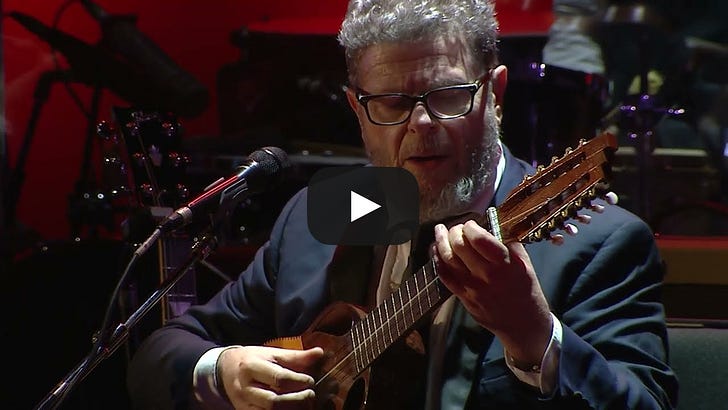 I recently interviewed White Lotus composer Cristobal Tapia de Veer and he said that once you’re past the first episode of working on a series, it becomes easier because then you’ve laid a template for the rest of it. Did you find that as well? GS: There is some truth to that because one part of the process has to do with creation; creating the themes and the sonic fabric. But there’s another part, which has more to do with the craft and mechanical stuff. How do you build on what you created with the resources you already have in your hand? But I like to write a lot of music before anything is filmed. My most clear example I always talk about is Brokeback Mountain, in which every single note of the score was done prior to anything being shot. It was for Ang Lee to say, “I’m going to put this in this part here, I’m gonna use this one again there.” Ang had the music that I created, which were inspired by the characters and by the story without me necessarily knowing what was going to be used in the film. So I like to work that way very much. When it comes to The Last of Us, with the video games, you don’t get to see stuff in motion until about two, three years after you start working on the music. RL: What made you originally say yes to composing music for a video game? GS: I’m a terrible gamer. I’m an awful gamer. But I always loved to watch my son play and I always thought, man, if somebody one day connects on an emotional level with the games — aside from the combat and survival and all the gymnastics, you know, which are fine, but if somebody connects with the heart and human side, our contradictions and moral dilemmas, it’s going to be a revolution, you know? RL: Wow, so you had that thought first and then The Last of Us came along? GS: Yes! After the Oscars one year, I was approached by a big French company for a big project — not only financially, but in terms of exposure and everything that comes with a big project. But it was more of the same, and I said no. I think part of my success has to do not only with the things that I’ve done, but also with the things that I said no to. After I passed on it, Neil Druckmann appeared. What’s funny was that they were telling Neil, “No, he’s not going to do this, he has an Oscar and won’t be interested in doing a video game.” But I’m actually interested in every media and everything where music can play a role. When Neil told me that he wanted to make a game that connected on an emotional level with a gamer, and I even heard some people were crying while playing the game, I said, “Well, this is it!” RL: Have you been clued in on what happens in the impending next season, which was announced earlier this year? GS: Of course. And the thing is, I’ve already been in trouble. I got in trouble a few times. But aside from that, I do like the idea of uncertainty, you know? Follow us: Instagram | YouTube | LinkedIn | Bluesky | TikTok | X | Threads | Facebook | WhatsApp ICYMI
Like & Subscribe, a creator economy newsletterThe Optionist, a newsletter about IP |
'Last of Us' Brought Apocalypse. Gustavo Santaolalla Brought the Humanity
May 30, 2025
0


